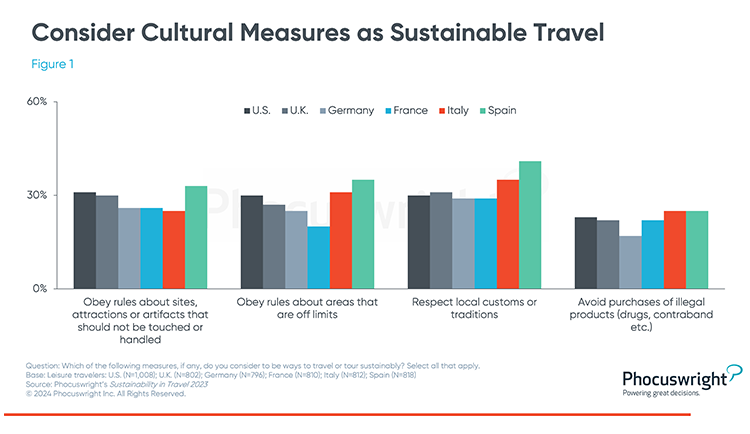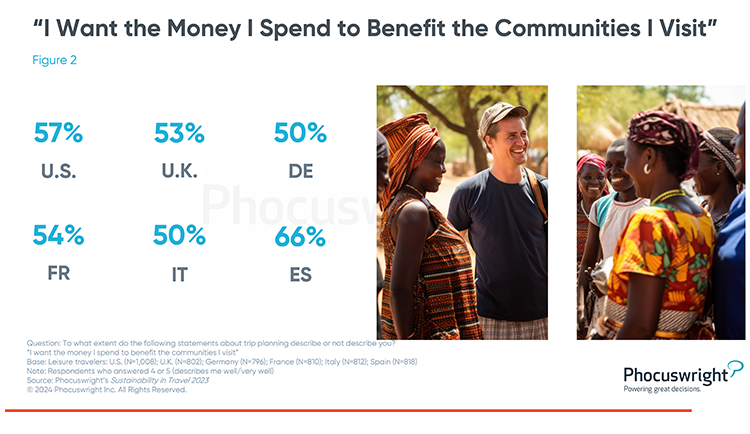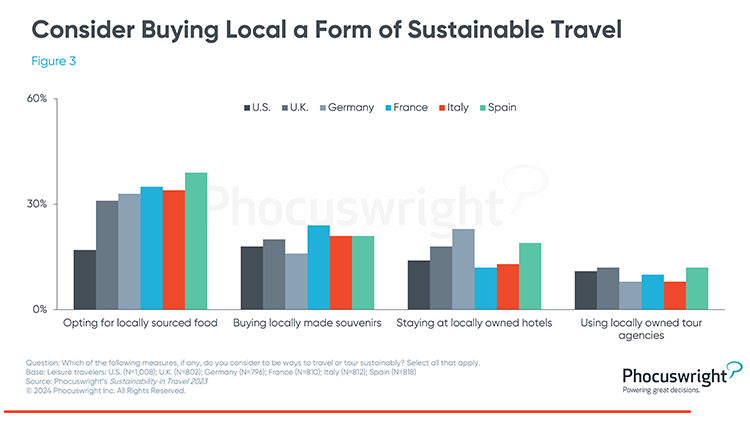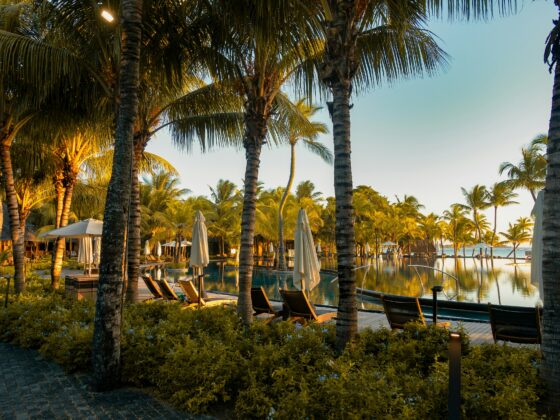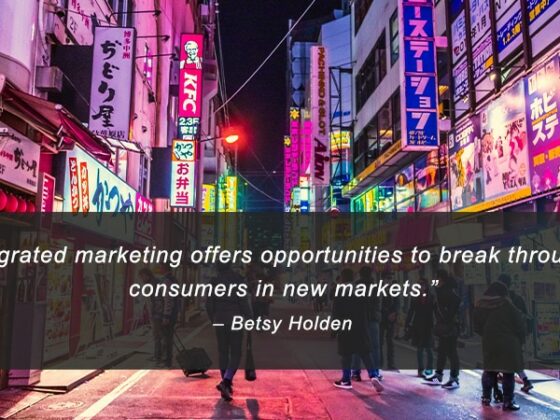Travelers’ understanding of sustainable travel is generally limited, and cultural and economic sustainability are no exceptions. According to Phocuswright’s travel research report Beyond Climate Change: Cultural and Economic Sustainability in Travel, among the two categories, cultural measures evoked stronger comparative recognition (see Figure 1). Travelers show some intuitive understanding that they should follow rules and blend in when they’re away from home. Roughly one quarter to a third of travelers consider obeying rules about what shouldn’t be touched or handled and where they’re not allowed to go to be part of traveling sustainably. Fewer travelers understand that obeying laws that forbid the purchase of illegal goods like drugs or contraband also contributes to more sustainable destinations.
On the economic side, travelers enjoy the idea that the money they spend should benefit the communities in destinations where they travel. Between half and two thirds of travelers say they want the money they spend to benefit the communities they visit (see Figure 2).
However, the idea that tourism spend could make a destination better is more of a sentiment than a guiding principle for travelers. It’s also not common knowledge that supporting local businesses makes the travel industry more sustainable. Most travelers don’t connect the initiative to support local businesses with the concept of sustainability. The purchases they are most likely to view as sustainable are locally sourced food options (see Figure 3). Food feels like a win-win: Travelers get to try something new and different, and support local restaurant owners or purveyors in the process. U.S. travelers (17%) lag far behind their European counterparts (31-39%) on this measure. But almost universally, travelers also neglect the importance of supporting local with larger-ticket purchases. Using local hotels or tour agencies is viewed less as sustainable travel than low-stakes purchases like meals and souvenirs.
Economic sustainability may be critical to destinations themselves, but it suffers from its own brand of short-sightedness from travelers that’s precipitated by a variety of factors:
- Over-association with environment. Sustainable travel has traditionally been so associated with the environment that travelers don’t frequently connect economic policy with sustainability.
- Low transparency around spend. Travelers rarely have the means to understand where their money goes after they spend it.
- Lack of signals. Other types of sustainability issues present with more visible cues (e.g., trash buildup, pollution, poorly maintained areas, heavy crowds) while the effects of economic sustainability challenges are more concealed. Challenges like shortages of well-paying tourism jobs for residents, affordable housing accessibility, or local businesses struggling for share against big travel brands are impactful for a destination. However, they typically percolate outside of the traveler’s view.
- Limited impact on traveler experience. Lack of economic sustainability doesn’t negatively affect the travel experience at the magnitude of issues like overcrowding. Travelers can’t detect the issue through the lens of their own experience. In addition, these problems often develop over extended periods, so travelers are long finished with their vacations by the time impacts strike.
Communication or education efforts around economic sustainability need to take extra care to be direct and transparent because these issues are too covert for travelers to discern them on their own.
Phocuswright’s Beyond Climate Change: Cultural and Economic Sustainability in Travel is part of a comprehensive consumer research study focused on sustainability in the modern travel environment. Key questions addressed include:
- What is travelers’ awareness level with regard to issues surrounding cultural and economic sustainability?
- How do consumers’ intentions, misconceptions and incentives concerning sustainable travel behavior influence the trip-related choices they make?
- What are travelers’ attitudes regarding who should be responsible for addressing cultural and economic sustainability challenges?
- How does the rapid proliferation of short-term rentals impact economic and cultural sustainability in popular destinations?
- What can travel suppliers, DMOs and other stakeholders do to help bridge the gap between good intent and measurable sustainability actions on the part of the consumer?
Research is our priority. Our Open Access research subscription puts the world’s most comprehensive library of travel research and data visualization at your fingertips.
Clients have relied on Phocuswright’s deep industry knowledge for over 25 years to power great decisions, help justify a pitch, build a strategic plan and elevate any presentation through trusted research and data. When companies and executives reference Phocuswright, they gain the trust of an industry keen on data, trends and analytics.
See the full benefits of an Open Access subscription here.
Plus, we just redesigned Phocal Point, the powerful data visualization tool that now makes it easier to access and interpret Phocuswright data.
It’s all about the data. With an updated navigation interface, new dynamic filtering, additional segment and channel breakouts in select markets and rich detailed views of 35+ markets, Phocal Point allows you to create custom interactive charts and view travel data by segment, channel, device, region and country. Our proprietary travel industry market sizing data allows you to look to the future with projections through 2026, and review historical data as far back as 2009.
